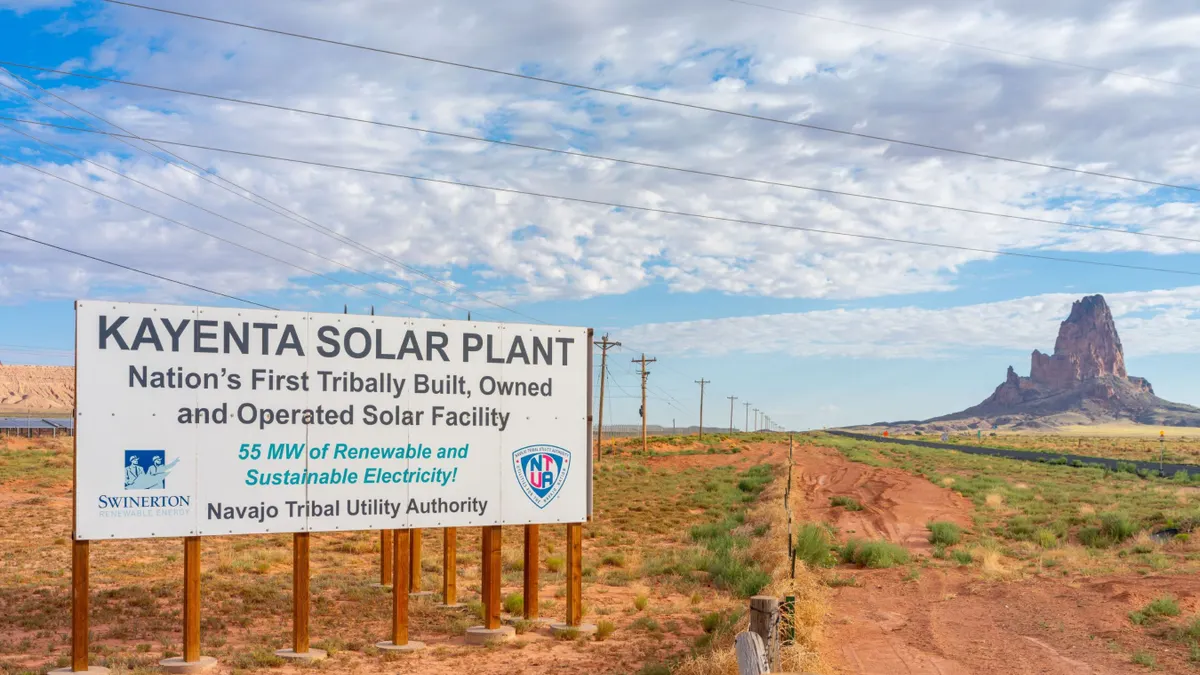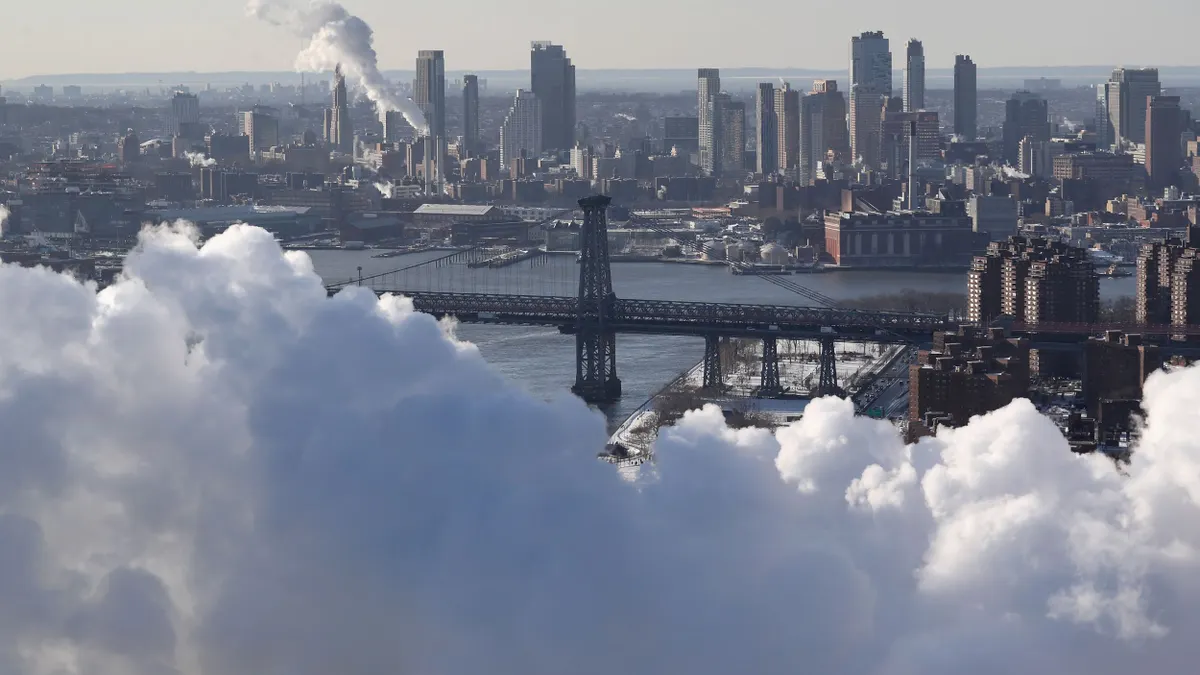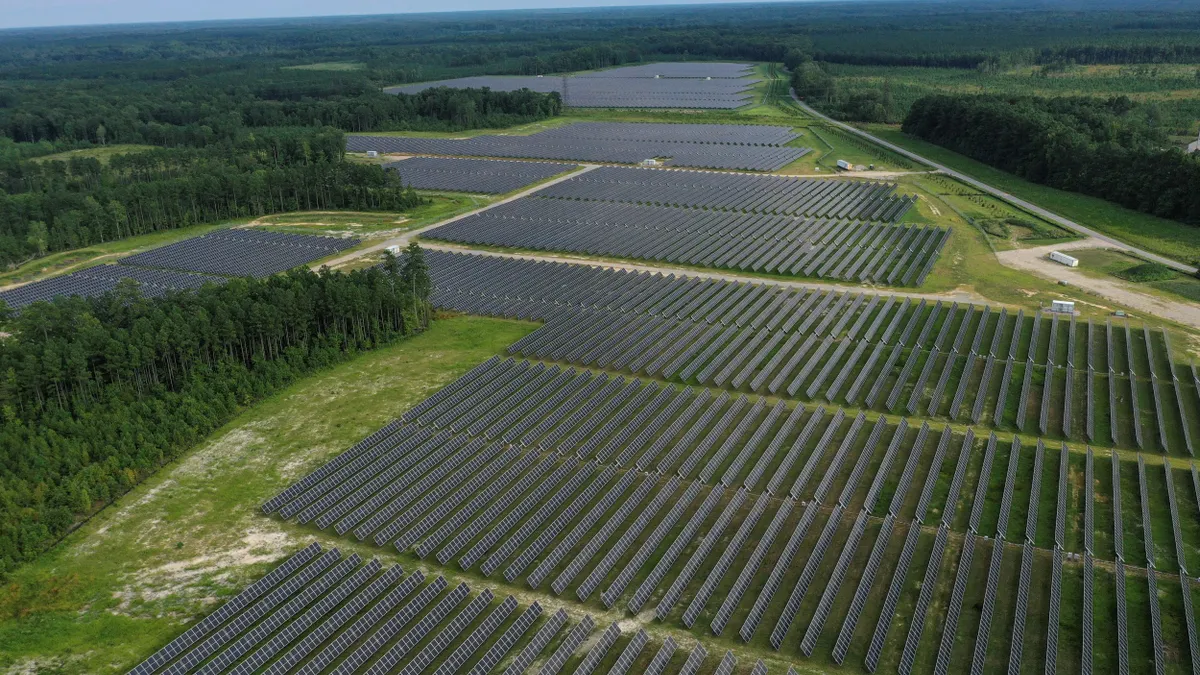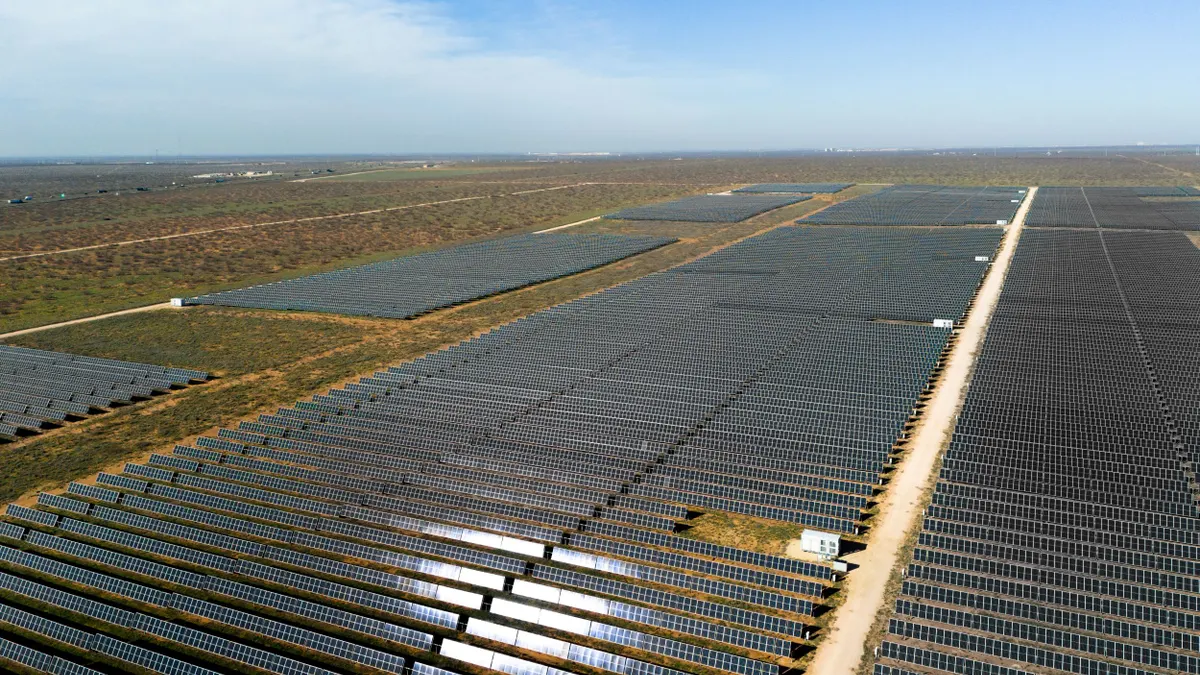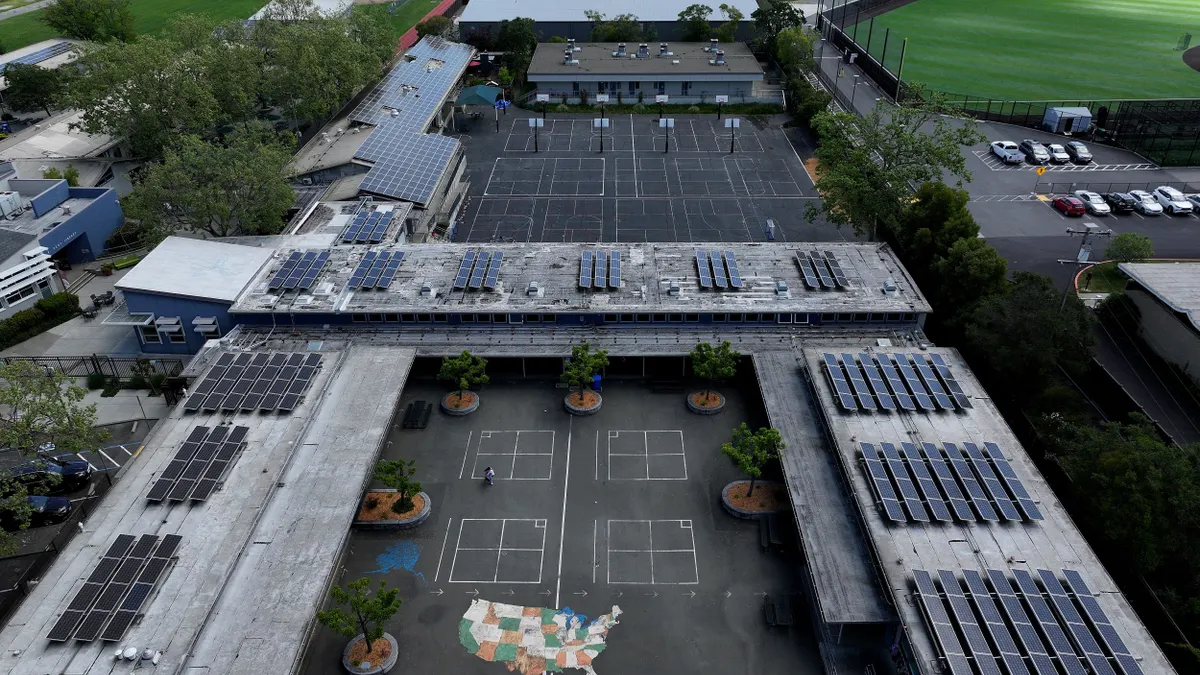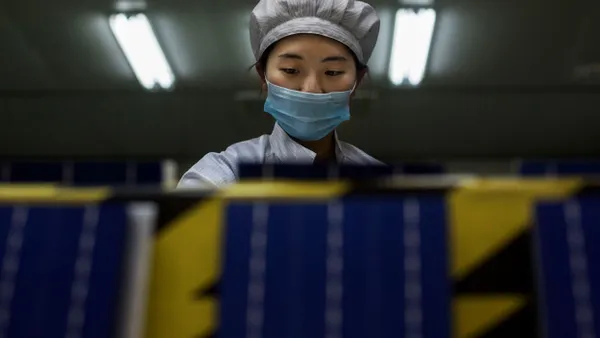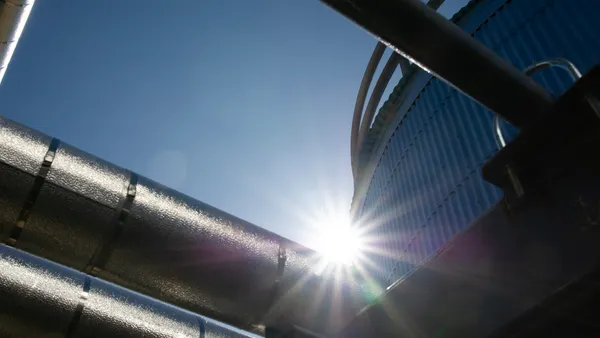The economic repercussions of the COVID-19 pandemic could cause widespread disruptions in the energy sector, tightening demand, jeopardizing supply chains, diverting regulatory attention and negating previous growth forecasts for solar and storage deployment, according to financial analysts and industry experts.
The novel coronavirus outbreak will be a "significant global crisis, triggering an economic slowdown" — which will likely affect the broader clean energy transition, including renewables, energy storage, and electric vehicles, analysts at BloombergNEF said in a report published last week. The analysts are particularly concerned about demand — BNEF has reduced its 2020 global solar demand forecast from between 121 GW and 152 GW to a range of 108 GW to 143 GW, which could make this the first year that solar capacity additions have declined since the 1980s.
Investors could have a tough time raising equity due to the collapse in stock markets, and a general lack of business and consumer confidence could affect financing, installations and power purchase agreements, according to the report. On the regulatory front, COVID-19 could cause policy-makers to turn their attention to more urgent needs, slow down legislative processes and potentially affect solar, wind and storage build in 2021, analysts said.
"In 32 years of this, I've never seen anything where the conventional wisdom of what needs to be done… seems to change everyday."

Bob Nichols
Partner, Bracewell
The pandemic has become "an immediate and dramatic business concern" for the industry as a whole, Bob Nichols, partner with Bracewell LLP, told Utility Dive, especially given how rapidly the situation has changed.
"In 32 years of this, I've never seen anything where the conventional wisdom of what needs to be done … seems to change everyday," he added.
As of Monday, the Centers for Disease Control and Prevention reported nearly 3,500 confirmed and presumptive positive cases of COVID-19 in the United States, and 68 fatalities. The pandemic — which was labeled a national emergency by President Donald Trump last week — has also pushed many utilities to pause service disconnections and roll out flexible payment plans for the time being.
"Something that's unique about the energy industry is they cannot close down," Nichols said, adding that another big question mark is whether people who are being forced not to work because of COVID-19 response measures will be paid — many companies are waiting to see what the federal government does on that front, he said.
"I think in the same way that a growth forecast that was issued in May of 2008 for the next year is not going to be very accurate… any sort of forecast that came out in the last year for 2020, you can't really put a lot of stock in it."

Josiah Neeley
Senior Energy Policy Fellow, R Street Institute
"You've got to throw out any growth projection from before the outbreak, because everybody is going to be thinking quite differently now than they were a couple of months ago, both on the supply and on the demand side," according to Josiah Neeley, senior fellow of energy policy at the R Street Institute.
While there are still many unknowns about COVID-19 — including whether it could recede during the summer months — "I think in the same way that a growth forecast that was issued in May of 2008 for the next year is not going to be very accurate … any sort of forecast that came out in the last year for 2020, you can't really put a lot of stock in it," he told Utility Dive.
‘Unexpected delays' for the solar sector
The pandemic is taking a toll on the solar sector, the Solar Energy Industries Association (SEIA) said in an open letter last week. The association's members are reporting supply chain disruptions, delays to projects and sales challenges, which could prevent them from meeting project delivery deadlines and could even affect eligibility for tax or state incentives.
"We are looking into this and other implications at the federal and state level and advocating for policies as appropriate to accommodate the unexpected delays and detrimental impacts our industry is facing," SEIA said.
Solar provider Westhaven Solar has not witnessed any disruptions to business yet, but that's because the situation is changing so quickly, CEO Brett Joerger told Utility Dive.
"It's remarkable for me to consider the fact that there is an ongoing trade war between China and the U.S. and that might not even be in the top three issues affecting the energy storage market right now."

Dan Finn-Foley
Head of Energy Storage, Wood Mackenzie
"Currently, I haven't seen any change anywhere — from sales or installations, by any means — but with the rapidly developing situation, that could change pretty dramatically," he continued.
On a more positive note, he thinks demand will increase again once the virus passes, especially in California, where wildfire shut-offs are right around the corner, he said.
'The situation is getting more severe' for energy storage
On the energy storage front, COVID-19 could affect battery demand more than supply, according to the BNEF report, and demand for batteries across the globe could be tens of GWh lower than expected for 2020.
"It's remarkable for me to consider the fact that there is an ongoing trade war between China and the U.S. and that might not even be in the top three issues affecting the energy storage market right now," Dan Finn-Foley, head of energy storage at Wood Mackenzie, told Utility Dive.
"That just shows you how disrupted this market is, and for a new industry that's going to be a question of how quickly it can bounce back from these massive disruptions right as it's beginning to emerge at scale," he added.
The battery storage industry has experienced supply chain disruptions, the extent of which is still uncertain, according to Finn-Foley. While a lot depends on how quickly factories are able to ramp back up and how strict mitigation efforts are, "it certainly seems like the situation is getting more severe in many markets."
There's likely to be a lag before these disruptions translate to actual on-the-ground effects, but as the U.S. ramps up mitigation efforts, deployments could slow down, according to Finn-Foley.
What will industry analysts be watching for as the outbreak continues to unfold?
Manufacturing levels are going to be key, Finn-Foley said. The storage sector is particularly vulnerable in this regard because it's a nascent industry, and its supply chains, inter-company relationships and supply agreements are not as fully formed as other industries, making it "potentially less resilient to absorb the impact of something like a coronavirus outbreak," he added.








